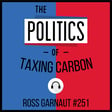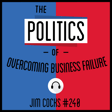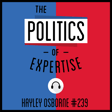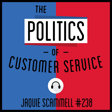
236: The Politics of Property Investing - Scott O’Neill
Property investing has become both a political hot-button topic in Australia where we have some of the world’s most expensive housing in our capital cities as well as a great way for “mum and dad” investors to build wealth. Safe as houses as the saying goes. Then there are the types – in short residential and then commercial property investing. So that is our podcast topic today. Meet Scott O'Neill, the Managing Director of Rethink Investing, has had a shift from civil engineering to property investment. Achieving financial independence by the age of 28 with a commercial and residential portfolio valued at $80 million AUD, Scott's dedication to mastering the nuances of the real estate market has propelled him to the forefront of the industry. Scott's dedication to empowering investors, whether new or experienced, towards financial freedom is exemplified through his contribution to the top commercial property podcast "Rethink Investing’s Inside Commercial Property Australia," his co-authored book "Rethink Property Investing," and the educational platform Rethink Commercial Education. He cultivates a culture of learning and growth, aiding Australians in their pursuit of financial independence and freedom by sharing his expertise.
Scott shares his views on:
1. Tell us how property investing has changed in the past decade, and what that means for commercial investors and other property.
2. Is commercial property investing vastly different from residential investing (beyond the stock type)? How?
3. Is being a high-net-worth individual mandatory to get a stake in those commercial types of property investing?
4. Since 2015, your firm has assisted more than 3,750 clients in acquiring over $4.25 billion worth of real estate, strategically focusing on positively geared, high cash-flow investment properties. Share your ethical and strategic approach or business edge.
5. What are the biggest 1-3 mistakes investors make and are these more than just market-related shifts such as the trendy locations being always “hot” or shiny new business parks opening up?
6. Favourite business tool (not a smartphone) and what can it do for you that helps?
7. Takeaway: What is your final message for us on The Politics of Property Investing?
Connect further:
Rethink Investing | Commercial Property Buyer's Agency Australia
POE listener offer: Zencastr is my podcast platform of choice. Use my special link (zen.ai/thepoliticsofeverything30 [http://zen.ai/thepoliticsofeverything30]) and use code "THEPOLITICSOFEVERYTHING" to save 30% off your first three months of Zencastr professional. #madeonzencastr



















